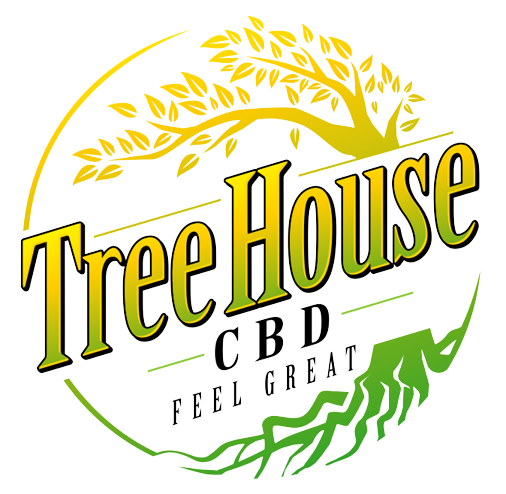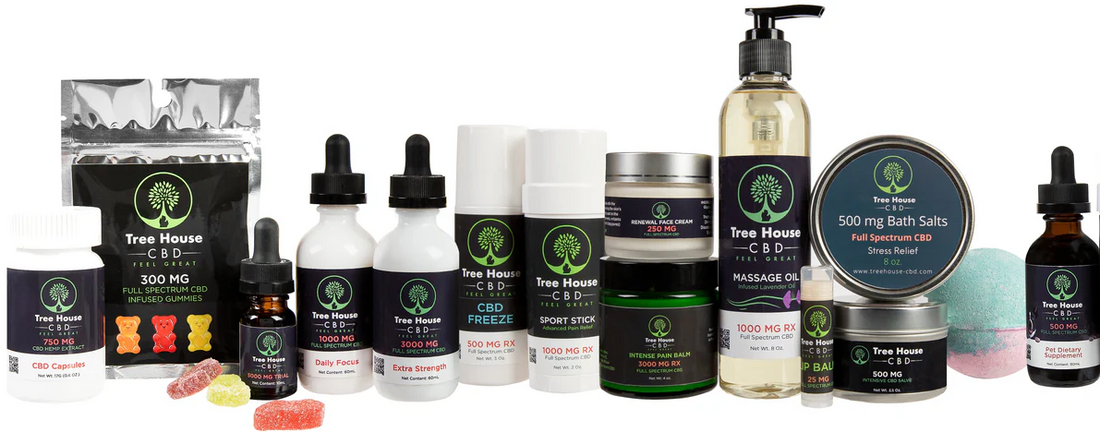The question "Can you mix CBD with meds?" has become increasingly important as cannabidiol (CBD) continues to gain popularity as a natural wellness supplement. With millions of Americans now incorporating CBD products into their daily routines while simultaneously taking prescription medications, understanding potential interactions between CBD and various medications is crucial for safe and effective use.
Can you mix CBD with meds? What you should know is that the answer isn't always straightforward and requires careful consideration of multiple factors. The growing acceptance of CBD as a therapeutic option has led many people to wonder whether they can safely combine it with their existing medication regimens.
However, like many natural supplements, CBD isn't necessarily harmless when combined with prescription drugs. The reality is that CBD can interact with numerous medications in ways that may affect how your body processes these drugs, potentially leading to serious consequences.
Understanding How CBD Affects Drug Metabolism
To comprehend whether you can mix CBD with meds safely, it's essential to understand how CBD influences your body's drug processing system. The primary concern lies in CBD's interaction with a group of enzymes called cytochrome P450 (CYP450), which are responsible for metabolizing approximately 60-70% of all medications.
Think of CYP450 enzymes as your body's drug processing factory. These enzymes break down medications so your body can use and eliminate them effectively. When CBD products enter the picture, it can temporarily slow down or inhibit these enzymes, similar to how grapefruit affects certain medications. This "grapefruit effect" means that medications may remain in your system longer or reach higher concentrations than intended, potentially leading to increased side effects or toxicity.
The most significant interaction occurs with the CYP3A4 enzyme, which processes many common medications including blood thinners, antidepressants, and heart medications. When CBD inhibits this enzyme, it can cause medications to accumulate in your bloodstream, creating potentially dangerous situations.
Specific Medications That May Interact with CBD
Blood Thinners and Anticoagulants
One of the most concerning interactions involves blood-thinning medications like warfarin (Coumadin), rivaroxaban (Xarelto), and apixaban (Eliquis). When you mix CBD with these meds, the anticoagulant effects may become amplified, increasing the risk of serious bleeding complications. Several case studies have documented patients experiencing dangerous bleeding episodes after combining CBD with warfarin.
If you're taking blood thinners and considering CBD, your doctor will need to monitor your international normalized ratio (INR) more frequently to ensure your blood clotting remains within safe parameters.
Antidepressants and Mental Health Medications
CBD can interact with various antidepressants, including selective serotonin reuptake inhibitors (SSRIs) like sertraline (Zoloft), fluoxetine (Prozac), and citalopram (Celexa). The interaction may lead to increased levels of these medications in your system, potentially causing side effects such as drowsiness, confusion, or serotonin syndrome in rare cases.
Tricyclic antidepressants like amitriptyline and nortriptyline may also see enhanced effects when combined with CBD, leading to increased sedation and potential cardiovascular effects.
Anti-Epileptic Drugs (AEDs)
Interestingly, while CBD itself is an FDA-approved medication for certain types of epilepsy (Epidiolex), it can still interact with other anti-seizure medications. Studies have shown that CBD can increase levels of clobazam and its active metabolite, potentially requiring dosage adjustments of the anti-epileptic drug.
Heart and Blood Pressure Medications
Calcium channel blockers, beta-blockers, and other cardiovascular medications may be affected by CBD use. The interaction can potentially enhance the blood pressure-lowering effects of these medications, leading to hypotension (dangerously low blood pressure) in some individuals.
Sedatives and Benzodiazepines
CBD may amplify the sedative effects of medications like diazepam (Valium), alprazolam (Xanax), and lorazepam (Ativan). This interaction can result in excessive drowsiness, impaired coordination, and increased risk of falls, particularly in older adults.
Factors That Influence CBD-Drug Interactions
Several factors determine the likelihood and severity of interactions when you mix CBD with meds:
Dosage Matters: Higher doses of CBD are more likely to cause significant enzyme inhibition. Even relatively small amounts (as low as 25mg daily) can potentially affect drug metabolism in some individuals.
Individual Metabolism: People metabolize drugs at different rates based on genetics, age, liver function, and overall health status. Some individuals may be more susceptible to interactions than others.
Route of Administration: How you take CBD affects its bioavailability and potential for interactions. Sublingual oils and edibles that pass through the digestive system are more likely to interact with medications than topical applications.
Timing: Taking CBD and medications at the same time may increase interaction risk compared to spacing them several hours apart.

Recognizing Signs of CBD-Drug Interactions
Understanding what to watch for if you're mixing CBD with meds can help you identify potential problems early:
• Increased or new side effects from your regular medications
• Changes in medication effectiveness
• Unusual drowsiness or alertness
• Digestive issues like nausea or changes in appetite
• Changes in heart rate or blood pressure
• Confusion or cognitive changes
• Unusual bruising or bleeding (particularly concerning with blood thinners)
Any unexpected symptoms after starting CBD while on medications should prompt immediate consultation with your healthcare provider.
Safe Practices for CBD Use with Medications
If your doctor determines that you can safely mix CBD with your meds, following these guidelines can help minimize risks:
Start Low and Go Slow: Begin with the lowest possible CBD dose (2.5-5mg) and gradually increase while monitoring for any changes in how your medications affect you.
Choose Quality Products: Select CBD products from reputable manufacturers that provide third-party lab testing results. This ensures you're getting the labeled amount of CBD without harmful contaminants.
Maintain Open Communication: Keep all healthcare providers informed about your CBD use, including dosage, timing, and any effects you notice.
Monitor Consistently: Track any changes in how you feel, sleep, or respond to your regular medications after introducing CBD.
Space Timing: When possible, take CBD and medications at different times of the day to potentially reduce interaction risks.
When Professional Consultation is Essential
You should always consult healthcare professionals before mixing CBD with meds if you:
• Take any prescription medications regularly
• Have chronic health conditions
• Are elderly or have compromised liver function
• Take medications with narrow therapeutic windows
• Experience any unusual symptoms after starting CBD
Your doctor or pharmacist can review your specific medication list and help determine whether CBD might be safe for you to try. They may also suggest alternative approaches or recommend specific monitoring if you decide to proceed with CBD use.
The Importance of Professional Guidance
The question of whether you can mix CBD with meds safely cannot be answered without considering individual circumstances. While CBD offers potential benefits for various conditions, it's not a harmless supplement when combined with prescription medications.
Healthcare providers can help you weigh the potential benefits against the risks, suggest safer alternatives if needed, and provide appropriate monitoring if you choose to use CBD alongside your medications. They may also recommend adjusting medication dosages or timing to accommodate CBD use safely.
Conclusion
Can you mix CBD with meds? What you should know is that the answer depends entirely on your specific medications, health status, and individual risk factors. While some people may be able to safely combine CBD with certain medications under medical supervision, others may face significant risks.
The key to safe CBD use lies in professional guidance and careful monitoring. Never assume that because CBD is natural, it's automatically safe to combine with your medications. The potential for serious interactions exists, particularly with commonly prescribed drugs like blood thinners, antidepressants, and heart medications.
If you're considering adding CBD to your wellness routine while taking prescription medications, make it a priority to discuss this decision with your healthcare provider. They can help you make an informed decision that prioritizes your safety while potentially allowing you to explore the benefits of CBD. Remember, your health is too important to leave to guesswork, and professional medical advice is your best resource for navigating the complex world of CBD-drug interactions.
FAQs
1) Can I take CBD with my current prescription medications?
Possibly, but only with your clinician’s guidance. CBD can change how some medicines are processed in the body, so it’s important to speak with your doctor or pharmacist before starting, stopping, or changing any CBD product or dose. Bring an up-to-date med list (including over-the-counter and supplements) so they can advise you safely.
2) What should I tell my healthcare provider if I want to try CBD?
Share why you’re considering CBD (sleep, recovery, daily calm, etc.), what form you’re eyeing (oil, gummies, capsules), how much you plan to take, and when you’d take it relative to your meds. Ask whether any of your prescriptions require extra monitoring (e.g. dose checks or lab work) while you trial CBD.
3) Are there people who should be extra cautious with CBD?
Yes. Be especially careful if you: take multiple prescriptions, use meds with narrow dose windows (e.g. certain heart, seizure, or blood-thinning meds), have liver issues, are pregnant/breastfeeding, or are an older adult. In these cases, professional guidance and careful monitoring are essential.
4) How do I lower the risk of interactions if my clinician says CBD is OK?
Start low and slow (e.g. a very small dose), keep a simple dosing schedule, and journal how you feel for the first 2–4 weeks. If your provider approves, you can also separate timing (taking CBD and your most sensitive meds several hours apart). Report any unusual effects promptly.
5) What red flags should make me stop CBD and call my doctor?
New or worsening side effects from your regular meds, unusual drowsiness, dizziness, palpitations, stomach upset, easy bruising/bleeding, or anything that feels “off.” If symptoms are severe or scary, seek urgent care.
6) How do I choose a safer CBD product?
Pick brands that publish third-party lab tests for every batch (potency, purity, and contaminant screening), use clear dosing, and offer responsive customer support. That transparency helps you and your clinician make informed decisions and adjust safely as needed.


